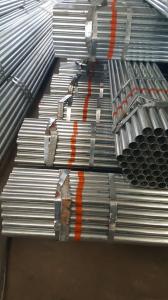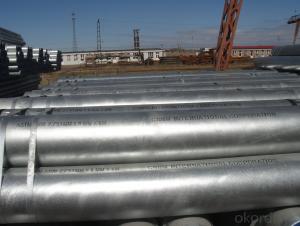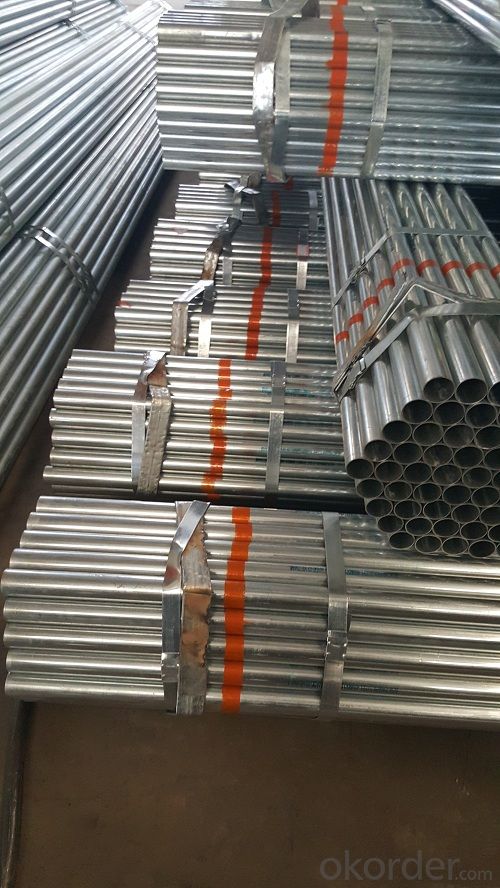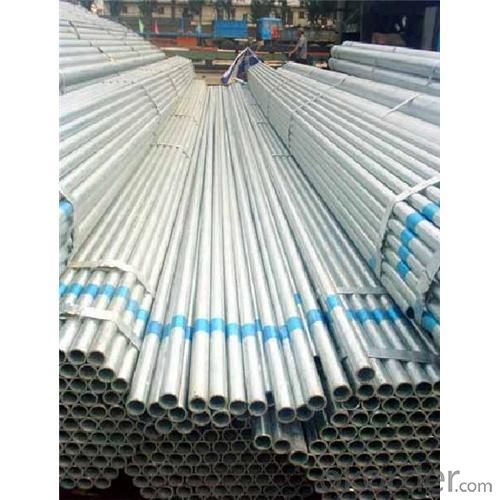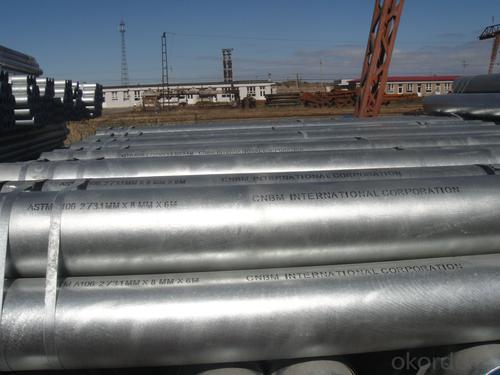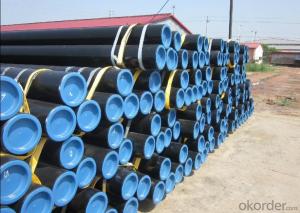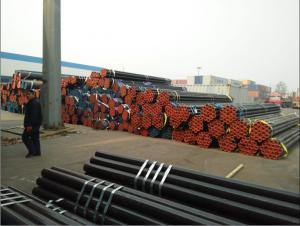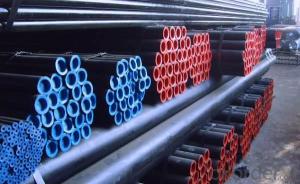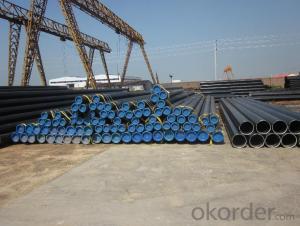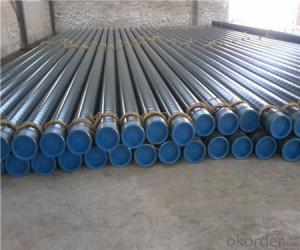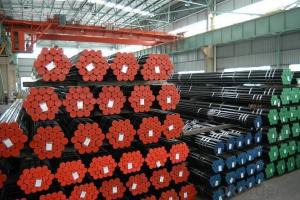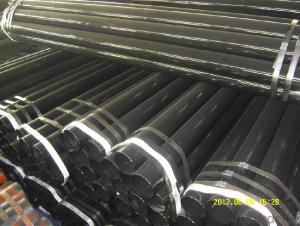GI pipe price 5/8", 3/4", 1",1 1/2"-20" sch40 GI pipe, Q235, Q195, A36, S235, St37
- Loading Port:
- Tianjin
- Payment Terms:
- TT or LC
- Min Order Qty:
- 25 m.t.
- Supply Capability:
- 10000 m.t./month
OKorder Service Pledge
OKorder Financial Service
You Might Also Like
1、Structure of GI pipe price 5/8", 3/4", 1",1 1/2"-20" sch40 GI pipe, Q235, Q195, A36, S235, St37:
The surface of galvanized steel pipe welded steel pipe of hot dip galvanized layer or. Galvanized can increase the corrosion resistance of the steel tube, prolong service life. Galvanized pipe is widely used, in addition to water, gas, oil and other general low pressure fluid pipelines. It is also used in the petroleum industry, especially for offshore oil field of oil well pipe and oil pipe, chemical, coking equipment of oil heater, condensation cooler, coal run oil exchanger tube, and trestle pile, the mine tunnel support frame tube.
.
2、Main Features of GI pipe price 5/8", 3/4", 1",1 1/2"-20" sch40 GI pipe, Q235, Q195, A36, S235, St37:
• High manufacturing accuracy
• High strength
• Small inertia resistance
• Strong heat dissipation ability
• Good visual effect
• Reasonable price
3、GI pipe price 5/8", 3/4", 1",1 1/2"-20" sch40 GI pipe, Q235, Q195, A36, S235, St37Specification:
Standard | GB, DIN, ASTM ASTM A106-2006, ASTM A53-2007 |
Grade | 10#-45#, 16Mn 10#, 20#, 45#, 16Mn |
Thickness | 8 - 33 mm |
Section Shape | Round |
Outer Diameter | 133 - 219 mm |
Place of Origin | Shandong, China (Mainland) |
Secondary Or Not | Non-secondary |
Application | Hydraulic Pipe |
Technique | Cold Drawn |
Certification | API |
Surface Treatment | factory state or painted black |
Special Pipe | API Pipe |
Alloy Or Not | Non-alloy |
Length | 5-12M |
Outer Diameter | 21.3-610mm |
Grade | 20#, 45#, Q345, API J55, API K55, API L80, API N80, API P110, A53B |
Standard | ASME, ASTM |
1) Material:20#(ASTM A 106/A53 GRB.API5LGRB,GB),45#,16Mn,10#.
2) Specification range:OD:21.3-610mm,WT:6-70mm,length:6-12m or according to the requirement of clients.
3) Excutive standards:GB,ASME API5L.ASTM A 106/A53,Despite of the above standards,we can also supply seamless steel pipe with standard of DIN,JIS,and so on,and also develop new products according to the requirements of our clients!
4) Surface:black lacquered,varnish coating or galvanized.
5) Ends:Beveled or square cut,plastic capped,painted.
6) Packing:bundles wrapped with strong steel strip,seaworthy packing.
4、Packaging & Delivery
Packaging Details: | seaworthy package,bundles wrapped with strong steel strip |
Delivery Detail: | 15-30days after received 30%TT |
5、FAQ of GI pipe price 5/8", 3/4", 1",1 1/2"-20" sch40 GI pipe, Q235, Q195, A36, S235, St37:
①How is the quality of your products?
Our products are manufactured strictly according to national and internaional standard, and we take a test
on every pipe before delivered out. If you want see our quality certifications and all kinds of testing report, please just ask us for it.
Guaranteed: If products’ quality don’t accord to discription as we give or the promise before you place order, we promise 100% refund.
②How about price?
Yes, we are factory and be able to give you lowest price below market one, and we have a policy that “ for saving time and absolutely honest business attitude, we quote as lowest as possible for any customer, and discount can be given according to quantity”,if you like bargain and factory price is not low enough as you think, just don’t waste your time.Please trust the quotation we would give you, it is professional one.
③Why should you chose us?
Chose happens because of quality, then price, We can give you both.Additionally, we can also offer professional products inquiry, products knowledge train(for agents), smooth goods delivery, exellent customer solution proposals.Our service formula: good quality+good price+good service=customer’s trust
SGS test is available, customer inspection before shipping is welcome, third party inspection is no problem.
6、GI pipe price 5/8", 3/4", 1",1 1/2"-20" sch40 GI pipe, Q235, Q195, A36, S235, St37 Images:
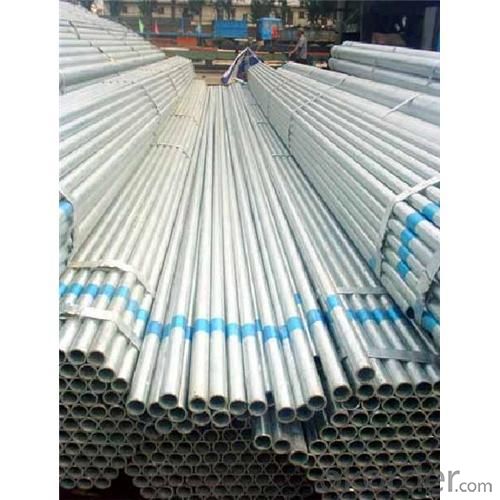
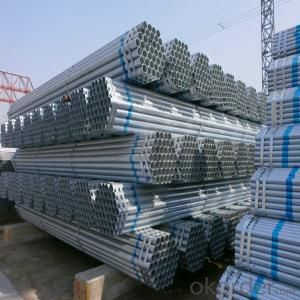
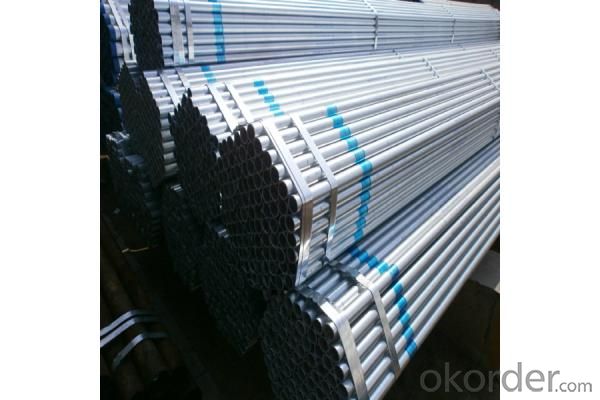
- Q: What is the impact toughness of steel pipes?
- The impact toughness of steel pipes refers to the ability of the material to withstand sudden or high-velocity impacts without fracturing or breaking. It is a measure of the material's resistance to cracking under dynamic loading conditions. The impact toughness of steel pipes is an important property as it determines their ability to withstand accidental impacts or external forces during transportation, installation, and operation. The impact toughness of steel pipes is typically evaluated using standardized tests such as the Charpy V-notch test or the Izod test. These tests involve striking a notched sample of the steel pipe with a pendulum or a falling weight and measuring the energy absorbed by the material before it fractures. The impact toughness is then calculated based on this energy absorption. A high impact toughness is desirable in steel pipes as it indicates a greater ability to absorb energy and resist fracture, making them more resistant to sudden impacts or loading conditions. This is particularly important in applications where steel pipes are used in high-stress environments, such as in oil and gas pipelines, automotive components, or structural applications. Various factors can affect the impact toughness of steel pipes, including the chemical composition, heat treatment, and microstructure of the steel. For example, alloying elements like manganese, chromium, and nickel can enhance the impact toughness by promoting the formation of fine-grained microstructures and preventing the propagation of cracks. Similarly, proper heat treatment processes such as quenching and tempering can improve the impact toughness by optimizing the material's microstructure and mechanical properties. In summary, the impact toughness of steel pipes is a crucial property that determines their ability to withstand sudden or high-velocity impacts. It is evaluated through standardized tests and is influenced by factors like chemical composition, heat treatment, and microstructure. A high impact toughness is desirable in steel pipes to ensure their structural integrity and resistance to fracture under dynamic loading conditions.
- Q: What are the different types of steel pipe coatings for underground gas pipelines?
- There are several types of steel pipe coatings used for underground gas pipelines, including fusion bonded epoxy (FBE) coating, three-layer polyethylene (3LPE) coating, and three-layer polypropylene (3LPP) coating. These coatings provide protection against corrosion, abrasion, and other external factors, ensuring the longevity and safety of the gas pipelines.
- Q: How are steel pipes used in the construction of chemical plants?
- Steel pipes are commonly used in the construction of chemical plants due to their excellent durability, strength, and resistance to corrosion. They are used to transport various chemicals, gases, and fluids throughout the plant, ensuring a safe and efficient flow. These pipes are also used for structural support, providing stability to the plant's infrastructure. Additionally, steel pipes are often used for the installation of heating, ventilation, and air conditioning systems, as well as for the construction of process equipment and storage tanks within the chemical plant.
- Q: What are the different methods of pipe insulation for steel pipes?
- There are several methods of pipe insulation for steel pipes, each with its own advantages and suitability for specific applications. Some of the commonly used methods include: 1. Fiberglass insulation: This is one of the most popular methods of pipe insulation. Fiberglass insulation is made of fine glass fibers and is available in various forms such as rolls, sheets, or pre-formed sections. It is lightweight, easy to install, and provides excellent thermal insulation properties. 2. Foam insulation: Foam insulation is another effective method for insulating steel pipes. It is available in different forms, including rigid foam boards or spray foam. Foam insulation is known for its high insulating value and its ability to seal gaps and cracks, providing enhanced energy efficiency. 3. Rubber insulation: Rubber insulation, commonly known as elastomeric insulation, is widely used for insulating steel pipes in HVAC systems. It is flexible, durable, and resistant to moisture, making it suitable for both indoor and outdoor applications. Rubber insulation also offers good thermal and acoustic insulation properties. 4. Polyethylene insulation: Polyethylene insulation is a cost-effective option for insulating steel pipes. It is available in different forms, such as foam tubes or molded sections, and is easy to install. Polyethylene insulation provides good thermal insulation, protects against condensation, and is resistant to water vapor diffusion. 5. Cellular glass insulation: Cellular glass insulation is a rigid insulation material made from crushed glass and a foaming agent. It is known for its exceptional thermal insulation properties, as well as its resistance to moisture, fire, and chemicals. Cellular glass insulation is commonly used in cryogenic and high-temperature applications. It is important to consider factors such as temperature, moisture conditions, and the specific requirements of the project when selecting the appropriate method of pipe insulation for steel pipes. Consulting with a professional or an insulation expert can help determine the best insulation method based on the specific needs and conditions of the project.
- Q: How are steel pipes used in the construction of high-rise buildings?
- Steel pipes are commonly used in the construction of high-rise buildings for various purposes. They are primarily used as structural elements, forming the framework and supporting the weight of the building. Steel pipes provide strength and durability, making them suitable for withstanding the vertical and lateral loads experienced by tall buildings. Additionally, steel pipes are used for plumbing and electrical systems, as well as for heating, ventilation, and air conditioning (HVAC) installations. Their versatility, reliability, and ease of installation make steel pipes an essential component in the construction of high-rise buildings.
- Q: Are steel pipes suitable for HVAC systems?
- Yes, steel pipes are suitable for HVAC systems. They are commonly used in HVAC installations due to their durability, strength, and resistance to high temperatures and pressures. Steel pipes also provide excellent corrosion resistance, making them ideal for long-term use in heating, ventilation, and air conditioning systems.
- Q: What are the different coating options available for steel pipes?
- There are several different coating options available for steel pipes, including epoxy coatings, polyethylene coatings, zinc coatings, and asphalt coatings. These coatings are applied to the exterior of the pipes to provide protection against corrosion, abrasion, and other environmental factors. Each coating option offers different benefits and is chosen based on the specific requirements of the project or application.
- Q: What are the factors to consider when selecting the right steel pipe for a specific application?
- When selecting the right steel pipe for a specific application, there are several factors to consider. These include the type of fluid or gas that will flow through the pipe, the temperature and pressure conditions of the application, the size and diameter requirements, the level of corrosion resistance needed, the cost and availability of the steel pipe, and any specific industry standards or regulations that must be followed.
- Q: Can steel pipes be used for transporting chemicals?
- Yes, steel pipes can be used for transporting chemicals. Steel pipes are known for their strength, durability, and resistance to corrosion, making them suitable for handling various chemicals. Additionally, steel pipes can withstand high pressure and temperature conditions, ensuring safe transportation of chemicals.
- Q: What is the maximum operating temperature for steel pipes?
- The maximum operating temperature for steel pipes typically depends on the specific grade of steel used. However, in general, carbon steel pipes can typically withstand temperatures up to 800-1000 degrees Fahrenheit (427-538 degrees Celsius). Other alloy steels, such as stainless steel or high-temperature alloys, can withstand even higher temperatures, ranging from 1200-1500 degrees Fahrenheit (649-816 degrees Celsius) or more. It is important to consult the manufacturer's specifications or industry standards to determine the exact maximum operating temperature for a specific type of steel pipe, as different grades and compositions may have different temperature limits.
Send your message to us
GI pipe price 5/8", 3/4", 1",1 1/2"-20" sch40 GI pipe, Q235, Q195, A36, S235, St37
- Loading Port:
- Tianjin
- Payment Terms:
- TT or LC
- Min Order Qty:
- 25 m.t.
- Supply Capability:
- 10000 m.t./month
OKorder Service Pledge
OKorder Financial Service
Similar products
Hot products
Hot Searches
Related keywords
